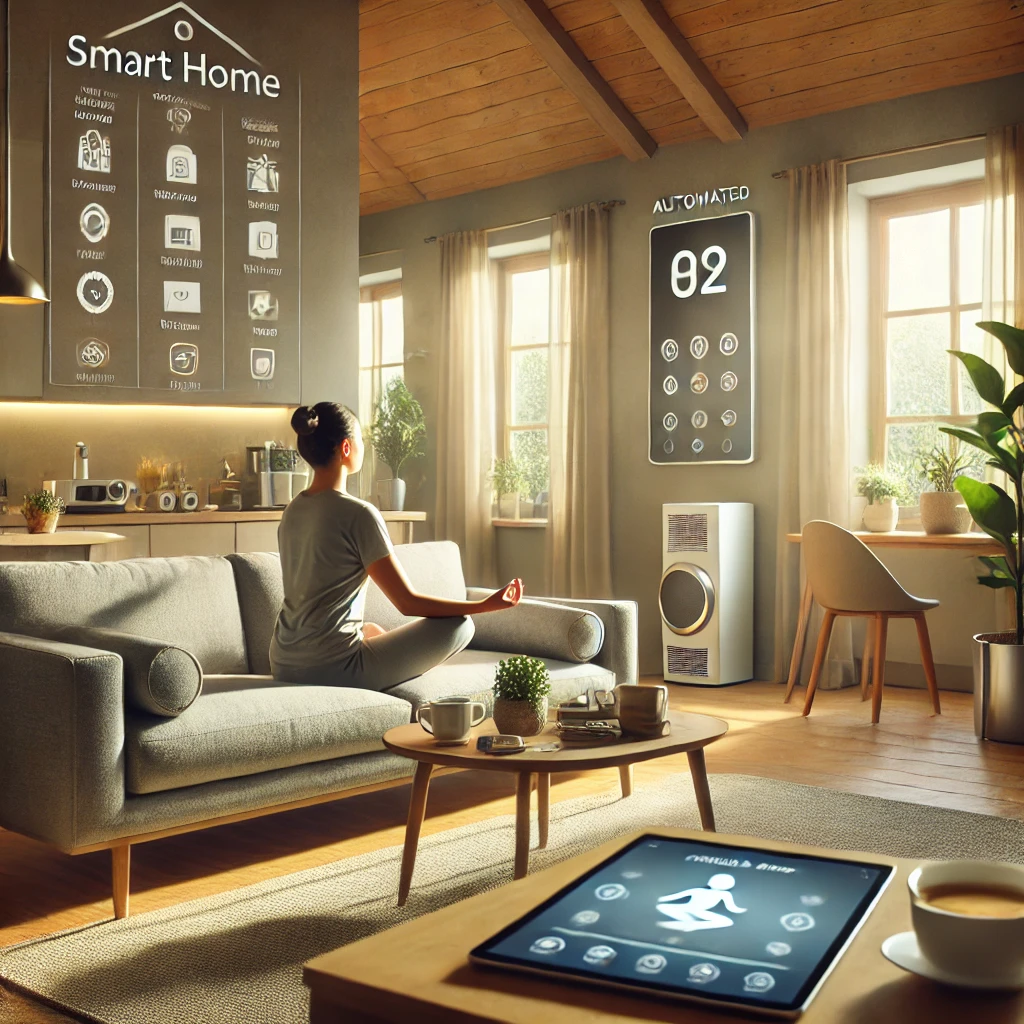How Automation Can Improve Your Mental Health
In the fast-paced world we live in, juggling various responsibilities can often lead to overwhelming stress and anxiety. Managing work, family, social commitments, and personal aspirations can become a daunting task. However, the advent of technology has brought forth a powerful ally in the form of automation. Automation, once primarily associated with industrial processes, has permeated various aspects of our daily lives. From smart homes to digital assistants, automation can play a significant role in enhancing our mental well-being. This article explores how automation can improve your mental health by reducing stress, promoting productivity, and fostering a balanced lifestyle.

Reducing Stress Through Automation
Streamlining Daily Tasks
One of the most immediate benefits of automation is its ability to streamline daily tasks. Smart home devices, such as automated lighting, thermostats, and security systems, reduce the mental load of managing household chores. Imagine waking up to a house where the coffee is already brewing, the thermostat is set to your preferred morning temperature, and the lights gradually brighten to simulate a natural sunrise. These seemingly small conveniences can significantly reduce daily stress, allowing you to start your day on a positive note.
Managing Time Effectively
Time management is a critical factor in maintaining mental health. The constant juggling of tasks can lead to burnout and anxiety. Automation tools like calendar apps, reminder systems, and task management software help organize your schedule more efficiently. These tools can automatically sync across devices, send reminders for important events, and even suggest optimal times for breaks and leisure activities. By having a structured approach to time management, you can alleviate the stress associated with forgetting important tasks or overcommitting yourself.
Promoting Productivity with Automation
Eliminating Repetitive Tasks
Repetitive tasks, whether at work or home, can be mentally draining. Automation can take over these mundane activities, freeing up mental space for more creative and fulfilling pursuits. For instance, email filters and autoresponders can manage your inbox, while automated data entry tools can handle tedious administrative work. This allows you to focus on tasks that require critical thinking and creativity, thereby enhancing your overall productivity and job satisfaction.
Enhancing Focus
Distractions are a major impediment to productivity. Automation tools designed to block distractions can create an environment conducive to deep work. Apps like Freedom and Focus@Will block distracting websites and apps, allowing you to maintain focus during work hours. Additionally, automation can manage notifications, ensuring that you are only alerted to essential messages during designated times. This controlled environment helps in maintaining concentration and achieving a state of flow, which is beneficial for both productivity and mental well-being.
Fostering a Balanced Lifestyle
Facilitating Self-Care
Self-care is an essential component of mental health. Automation can help integrate self-care routines into your daily life. Fitness apps, for example, can automate workout schedules and provide reminders to stay active. Meditation apps like Calm and Headspace offer guided sessions that can be scheduled automatically, encouraging regular practice. Additionally, automated meal planning and grocery delivery services ensure that you maintain a healthy diet without the stress of planning and shopping.
Improving Sleep Quality
Sleep is a critical factor in mental health, and automation can play a vital role in improving sleep quality. Smart sleep systems can analyze your sleep patterns and make recommendations for better sleep hygiene. Automated lighting systems can mimic natural light cycles, promoting a healthy circadian rhythm. White noise machines and smart speakers can create a calming bedtime routine, ensuring a restful night’s sleep. By enhancing sleep quality, automation contributes to overall mental well-being and resilience against stress.
Leveraging Technology for Emotional Support
Virtual Assistants and Mental Health Apps
Virtual assistants and mental health apps provide accessible support for managing mental health. AI-powered chatbots, like Woebot and Wysa, offer cognitive behavioral therapy (CBT) techniques and mindfulness exercises. These apps can be automated to check in on your emotional state regularly and provide personalized strategies for coping with stress and anxiety. While not a substitute for professional therapy, these tools can offer valuable support and guidance in maintaining mental health.
Building Social Connections
Social connections are vital for mental health, and automation can help maintain and strengthen these bonds. Automated messaging apps can send reminders to check in with loved ones, ensuring regular communication. Social media management tools can schedule posts and updates, keeping you connected with your social circles without the constant pressure to be online. Virtual events and online communities, facilitated by automation, offer opportunities to connect with like-minded individuals and build a supportive network.
Embracing a Future of Enhanced Mental Health
As technology continues to advance, the potential for automation to improve mental health grows exponentially. Embracing automation does not mean relinquishing control over your life; rather, it means leveraging technology to enhance your well-being. By automating routine tasks, managing time effectively, promoting productivity, and fostering a balanced lifestyle, automation can significantly reduce stress and improve overall mental health.
However, it is important to approach automation with mindfulness. Not all automation tools are created equal, and it is essential to choose those that align with your personal needs and preferences. Over-reliance on automation can lead to a sense of disconnection, so it is crucial to maintain a balance between automated convenience and human interaction.
In conclusion, automation offers a myriad of opportunities to enhance mental health. By reducing the burden of daily tasks, promoting productivity, and fostering a balanced lifestyle, automation can play a pivotal role in improving your mental well-being. As we navigate the complexities of modern life, embracing the power of automation can lead to a healthier, happier, and more fulfilling existence.



